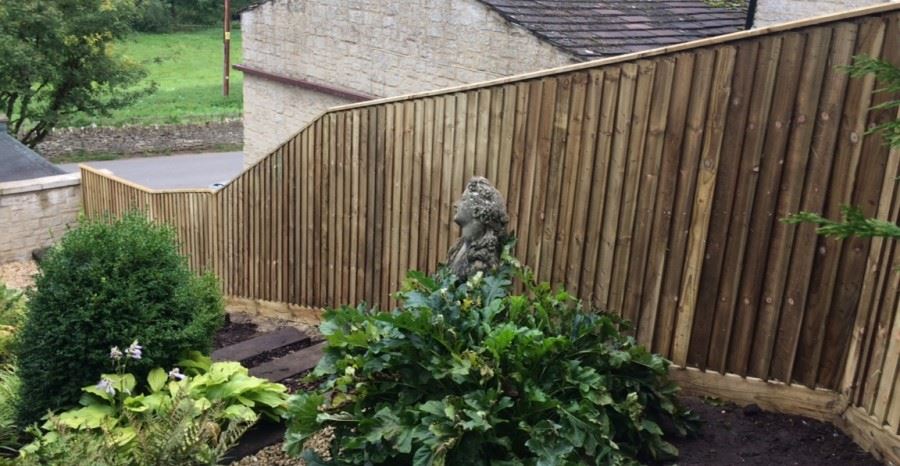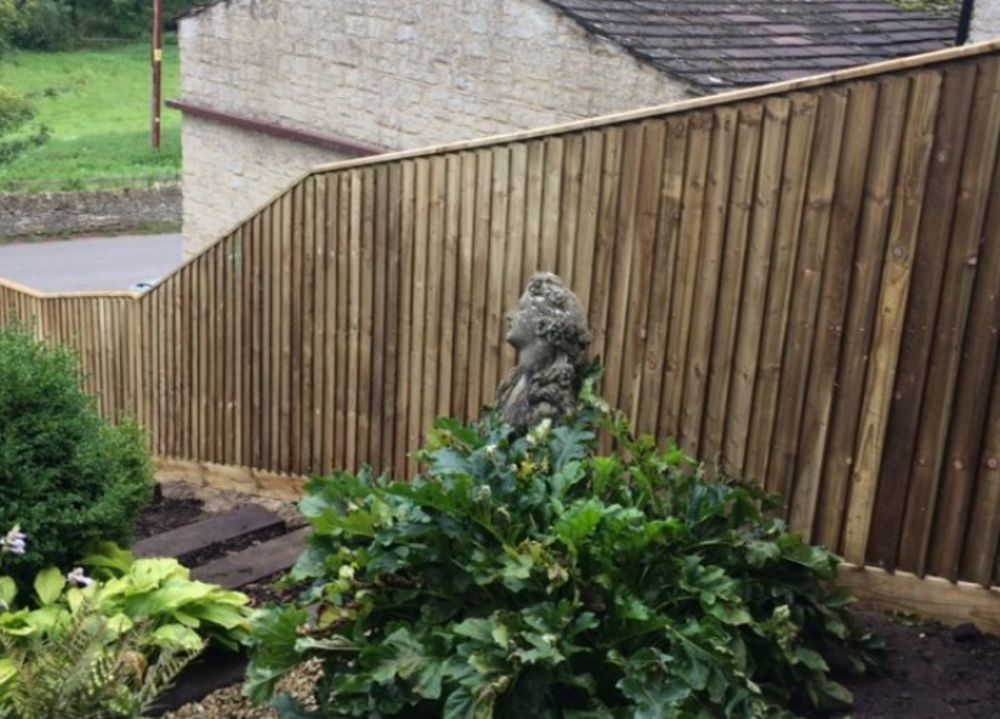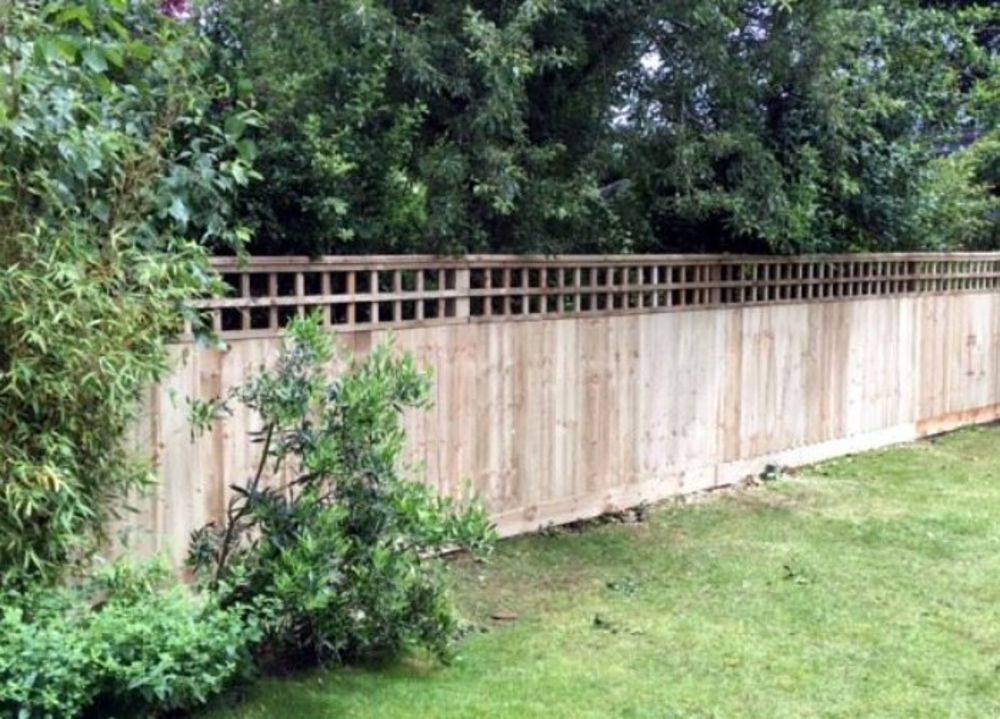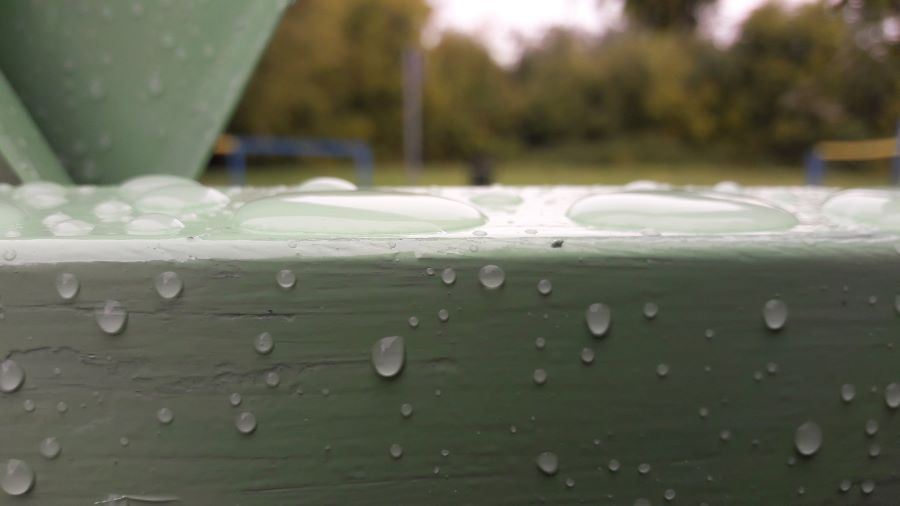
How does rain affect the life-span of your fencing?
UK winters are getting wetter…much wetter. Your garden fence can expect to receive a thorough soaking on a much more regular basis in future. But how will much higher rainfall affect the durability of your fence, and what can you do to increase its longevity?
First, some context: the Royal Meteorological Society reports that the most recent decade (2012–2021) has been on average 2% wetter than 1991–2020 and 10% wetter than 1961–1990 for the UK overall.
Wet conditions are no friend to your wooden fencing. Over time, rain will seep into timber panels and posts, causing rot, mould and mildew. In this weakened state, your fences may sag or collapse altogether, and they’ll be far less able to withstand the impact from gales and storms.
Tips to prevent rain damaging your fence
Buy pressure-treated fence panels
Good quality wooden fencing is usually treated to protect it from adverse weather and prolong its life. Pressure-treated timber has had preservative forced deep into the timber’s grain under high pressure, maximizing the protection to the wood.
Don’t be tempted to buy cheaper, untreated fence panels; they’ll rot away much more quickly in wet conditions.
Add gravel boards
Gravel boards run along the bottom of your fence, keeping it from coming into contact with wet or flooded ground. By keeping your fence panels dryer for longer, gravel boards will prolong the life of your fence, and if the boards themselves eventually start to rot, they can be replaced more cheaply than the timber panels. Read more about gravel boards.
Use post-saver sleeves
All that rain will soak into the ground, which creates very damp, rot-inducing conditions for timber fence posts. You can prolong their life by using Postsaver sleeves, which prevent moisture coming into direct contact with the part of the post below ground level.
Postsaver sleeves are made from a tough polythene outer sleeve lined with a meltable bituminous inner sealant. When heated, the sleeve creates an air and watertight seal; locking out any decaying factors.
Divert rainwater with fence post caps
The flat top surface of a timber post is vulnerable to rainwater, which collects and seeps through the exposed grain. Over time, this access point for water will cause mould and rot. Fence post caps come in a wide range of decorative shapes and styles, but their main function is to protect the top of the fence post from water ingress, prolonging its life.
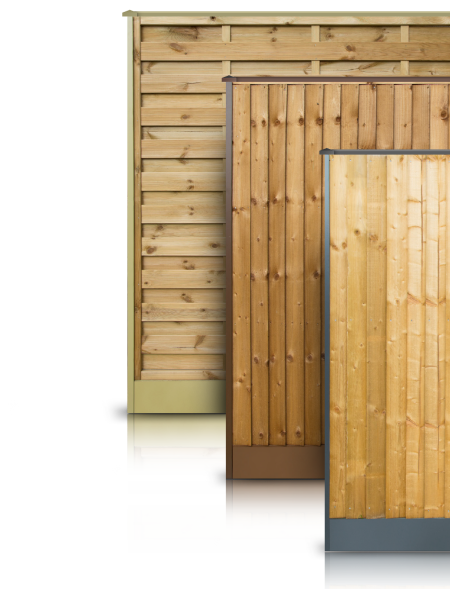 Use an alternative to timber posts
Use an alternative to timber posts
There are various arguments for and against concrete fence posts, but there is no doubt that concrete will outlast timber. The initial outlay is a little more expensive, and you’ll have your own opinion about how nice they look, but they will certainly be more tolerant of a wetter climate.
Another alternative to timber is a system called DuraPost. As strong and durable as concrete, but up to 80% lighter and easier to install, DuraPost is a galvanized steel fence post system (with optional gravel boards) which is much more pleasing to look at than concrete.
Have your fences installed professionally
If your garden is prone to wet, muddy patches or even occasional flooding, it’s really important that your fence is installed correctly, making it as strong and secure as possible to help it survive. Professional installers will know how deep to set posts in wetter areas, how to improve drainage around fence posts, and how much post mix to use to set posts securely.
An expert can also suggest modern, weather-resistant fencing materials that you might not know about.
For more fencing advice and assistance, please call 01865 863428 or 07900 938061, or send a few details on the enquiry form below.



